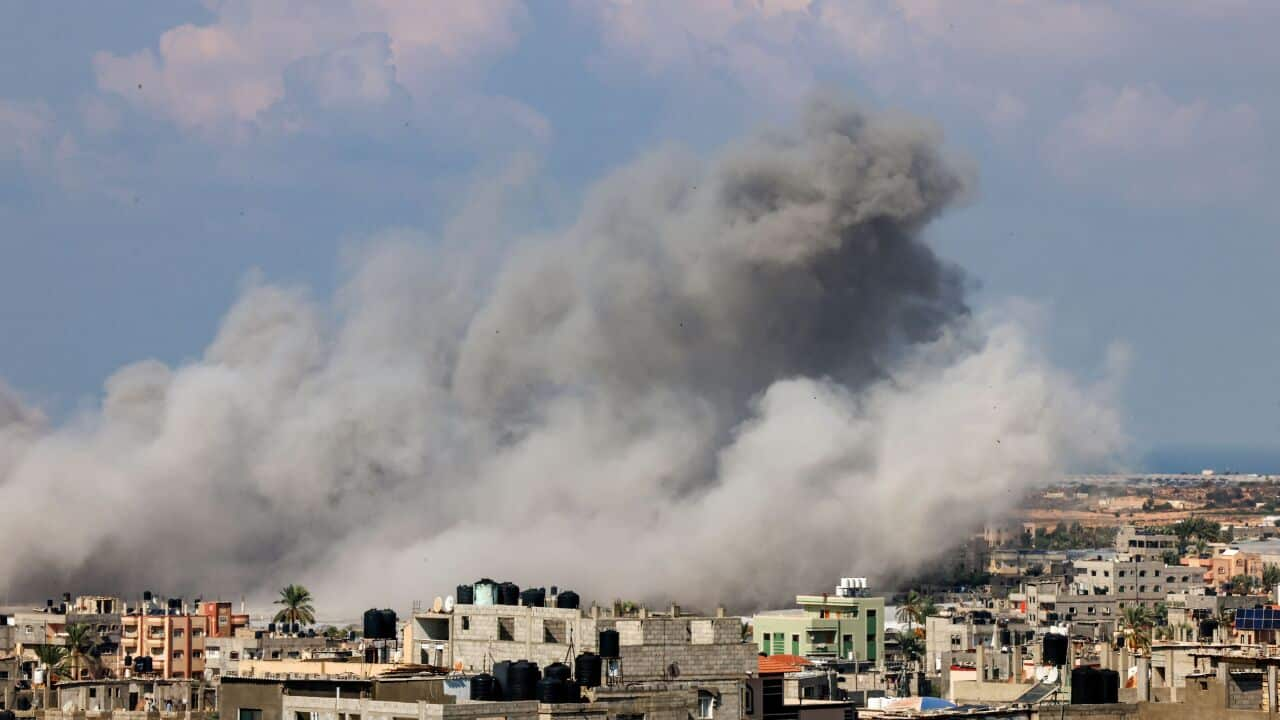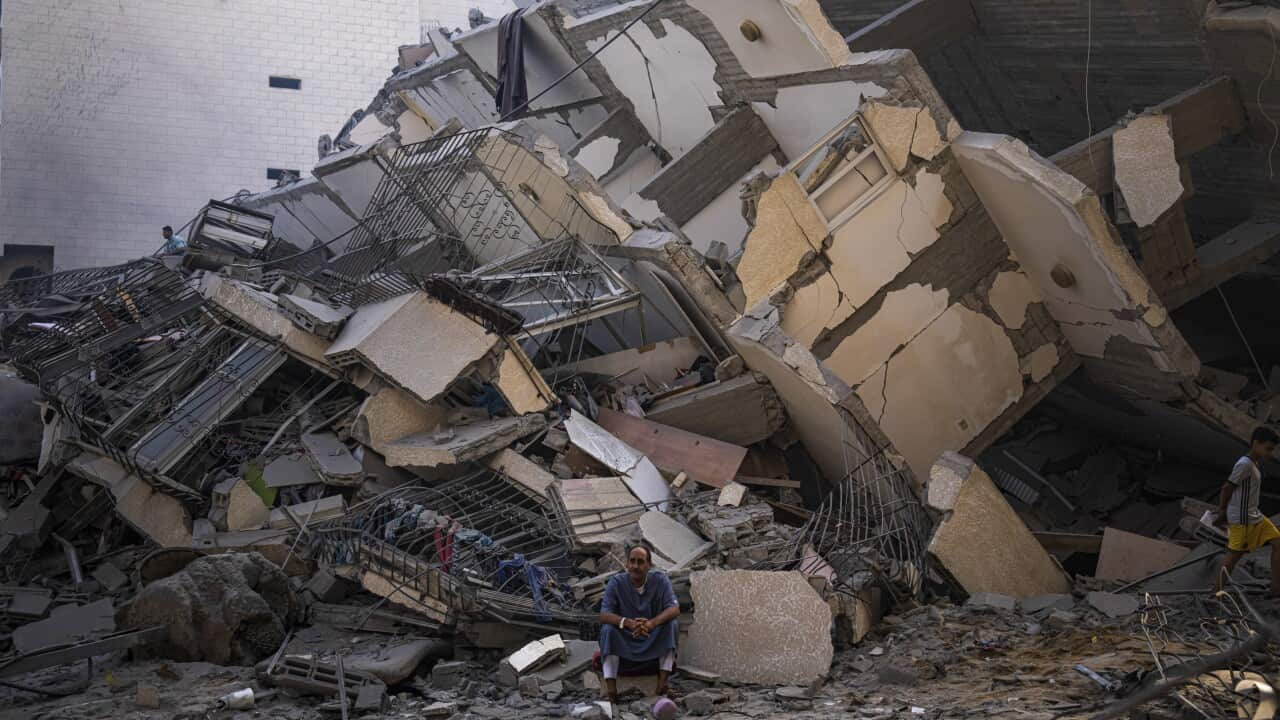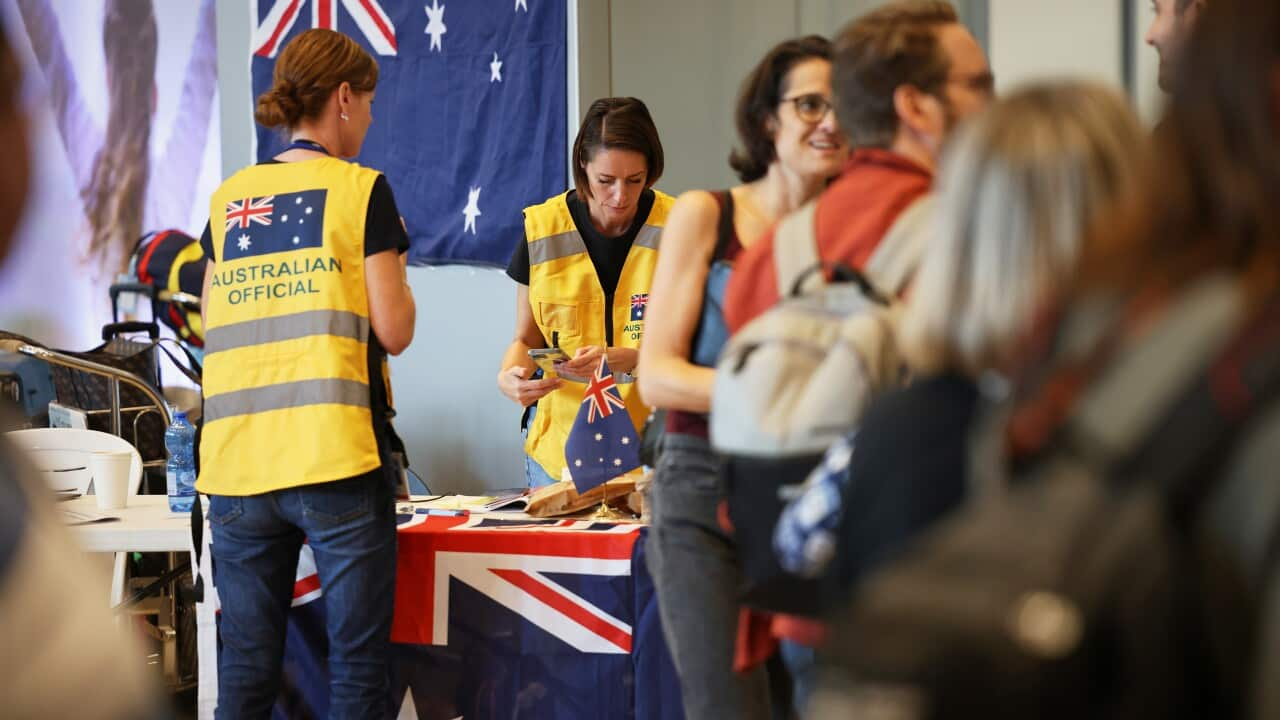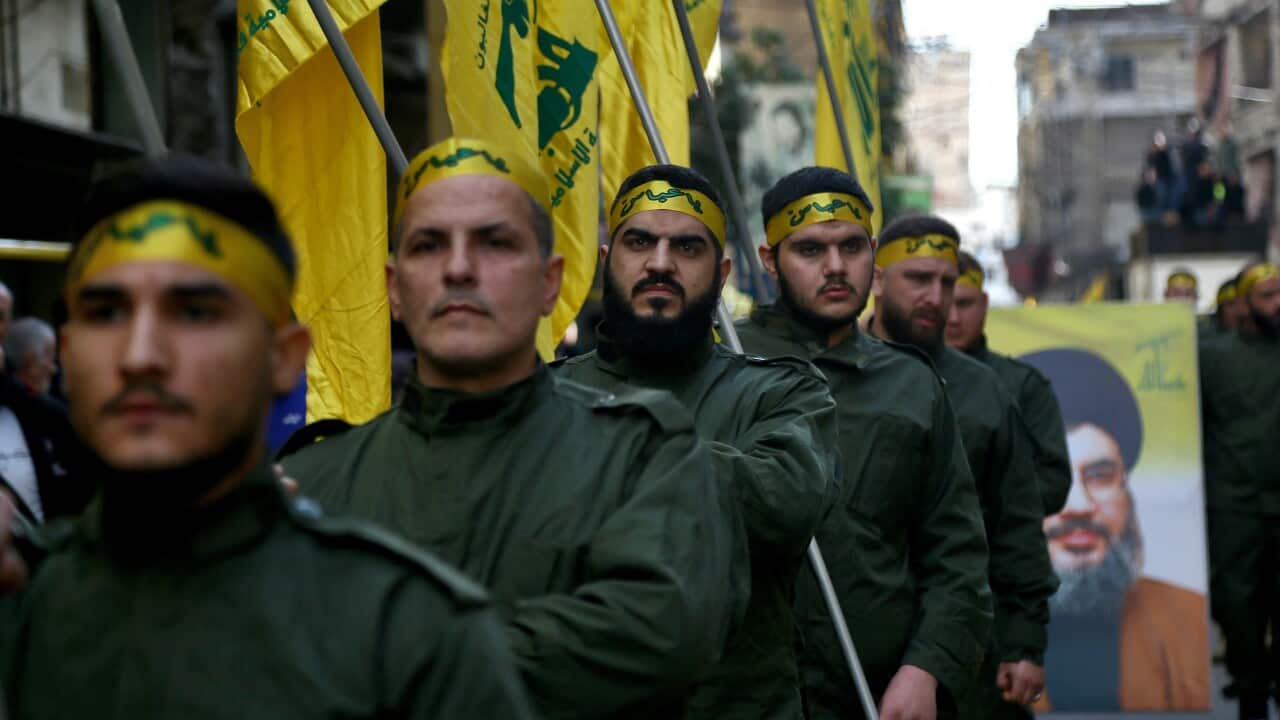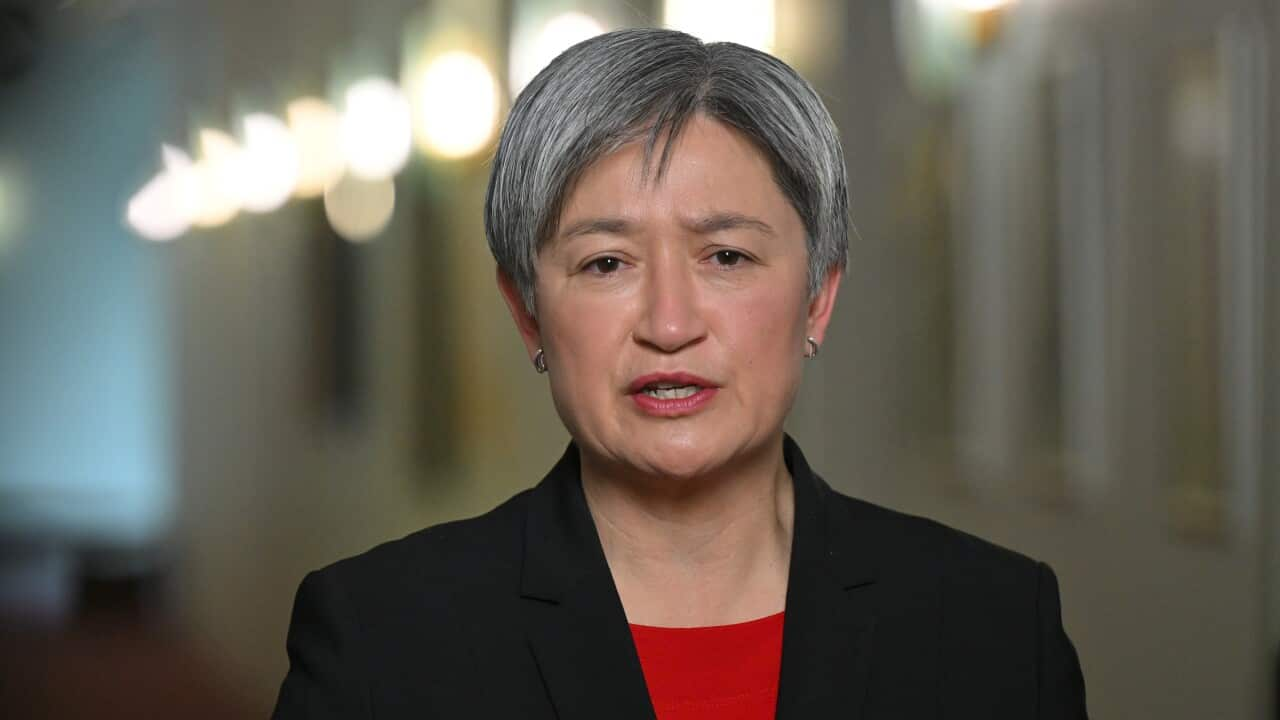Key Points
- Diplomatic efforts to secure a ceasefire for Gaza have failed.
- Israel evacuated villages near its border with Lebanon, raising concerns of a new front opening in the conflict.
- Gaza has been under a total blockade and subject to air strikes, with a ground assault pending.
US President Joe Biden will visit Israel on Wednesday for talks with Israeli Prime Minister Benjamin Netanyahu and to make clear Israel has the right to defend itself, Secretary of State Antony Blinken announced.
Biden will reaffirm solidarity with Israel as it prepares for a ground offensive against Hamas militants in Gaza, Blinken said after lengthy talks with Netanyahu.
"On Wednesday, President Biden will visit Israel," Blinken said in Tel Aviv.
"He's coming here at a critical moment for Israel, for the region and for the world."
Blinken said Biden would "reaffirm the United States' solidarity with Israel and our ironclad commitment to its security."
The president will also "again make clear... that Israel has the right, and indeed the duty, to defend its people from Hamas and other terrorists and to prevent future attacks," he said.
Biden is looking to send the strongest message yet that the US is behind Israel. His Democratic administration has pledged military support, sending US carriers and aid to the region.
Officials have said they would ask Congress for upward of US$2 billion ($3.2 billion) in additional aid for both Israel and Ukraine, which is fighting Russia's invasion.

President Joe Biden is expected to reaffirm America's support for Israel during his visit. Source: AP / Evan Vucci
Diplomacy to let aid into Gaza
This comes as the US and Israel agreed to develop a plan that will enable humanitarian aid from donor nations and multilateral organizations to reach civilians in Gaza, Blinken said.
Efforts to negotiate a ceasefire to allow aid to reach the Gaza Strip with the United Nations had previously failed. Blinken reportedly met for over five hours with Israeli Prime Minister Benjamin Netanyahu in Tel Aviv.
There are reports sirens sounded during their meeting, forcing Netanyahu and Blinken to shelter in a bunker for five minutes.
"The United States and Israel have agreed to develop a plan that will enable humanitarian aid from donor nations and multilateral organisations to reach civilians in Gaza, and them alone, including the possibility of creating areas to help keep civilians out of harm's way," he said.
Iran issues warning
Earlier, Iran's foreign minister said Israel would not be allowed to act in Gaza without consequences, warning of "preemptive action" in the coming hours.
Gaza authorities say more than 2,800 people have been killed there, around a quarter of them children, and more than 10,000 wounded are in hospitals desperately short of supplies.
Iranian Foreign Minister Hossein Amirabdollahian told state TV: "Leaders of the Resistance will not allow the Zionist regime to take any action in Gaza. ... All options are open and we cannot be indifferent to the war crimes committed against the people of Gaza."
"The resistance front is capable of waging a long-term war with the enemy (Israel)... in the coming hours, we can expect a preemptive action by the resistance front," he said, without elaborating.
Iran refers to regional countries and forces opposed to Israel and the United States as a "resistance front." Amirabdollahian said it was not limited to Hezbollah in Lebanon and added: "This front was formed throughout the region to preserve the independence of nations and counter repeated aggressions by the Zionist regime over the past years."
Last week, Iran's top authority Supreme Leader Ayatollah Ali Khamenei said Tehran was not involved in the Hamas attack on Israel, but hailed what he called Israel's "irreparable" military and intelligence defeat.
Iranian President Ebrahim Raisi said on Monday that while Tehran supported the Palestinian cause, the resistance front against Israel made its own independent decisions.
Dire conditions in Gaza
Israel has ordered the evacuation of villages in a strip of territory near its border with Lebanon, raising fears the war could spread to a new front.
Israel vowed to annihilate the Hamas movement that rules Gaza, after , mainly civilians, in the deadliest day in Israel's 75-year history.
It has put Gaza, home to 2.3 million Palestinians, under a total blockade and pounded it with unprecedented air strikes and is widely expected to launch a ground assault.
According to the United Nations, a million Gazans have already been driven from their homes.
Power is out, sanitary water is scarce and the last fuel for emergency generators could be used up within a day.
Residents said overnight air strikes were the heaviest yet, and the bombing carried on through the day.
"We were inside the house when we found bodies scattering, flying in the air — bodies of children who have nothing to do with the war," said resident Abed Rabayaa, whose neighbour's house in Khan Younis, the main city in the southern part of the enclave, was hit overnight.
A new front in the Israel-Hamas conflict emerges
In the biggest sign yet that the war could spread to a new front, Israel ordered the evacuation on Monday of 28 villages in a 2km-deep zone near its Lebanese border.
Lebanon's Hezbollah movement said it had targeted five Israeli positions.
In retaliation, the Israeli side fired shells at the outskirts of the village of Dheihra in southern Lebanon.
According to a Lebanese security source, a shell fell near a Lebanese army post in Dheihra.
The Israeli army said soldiers operating along the Lebanese border were fired at but there were no injuries.
Netanyahu warns Iran and Hezbollah: 'Don't test us in the north'
In a speech to parliament, Israeli Prime Minister Benjamin Netanyahu said the country should prepare for a long battle, and delivered a warning to Iran and Hezbollah.
"Now we are focused on one target: to unite forces and charge forward to victory. This requires determination because victory will take time," he said.
"And I have a message for Iran and Hezbollah, don't test us in the north. Don't make the same mistake you once made. Because today the price you will pay will be much heavier."
The 10 days of strikes so far have failed to eliminate Hamas' capability to fire rockets into Israel, where warning sirens sounded.
Hamas said it fired a barrage at Jerusalem and Tel Aviv.

Israeli Prime Minister Benjamin Netanyahu urged Israel's citizens to brace for an extended struggle and issued a stern caution to both Iran and Hezbollah. Source: Getty / Jacquelyn Martin
Egypt says Israel not cooperating
Diplomatic efforts have concentrated on getting aid into Gaza through the Rafah crossing with Egypt — the sole route out that is not controlled by Israel.
Egypt said Israel was not cooperating, leaving hundreds of tonnes of supplies stuck.
"There is an urgent need to alleviate the suffering of Palestinian civilians in Gaza," Egypt's Foreign Minister Sameh Shoukry told reporters, adding talks with Israel on opening Rafah for aid had so far been fruitless.
Early on Monday, two Egyptian security sources told Reuters a temporary ceasefire in southern Gaza had been agreed to last several hours to facilitate aid and evacuations at Rafah.
However, Egyptian state TV later quoted an unnamed, high-level source as saying that no truce had been agreed.
Israel and Hamas both denied reports of a deal to open the crossing.
On the ground at Rafah, one source said the Egyptian side of the crossing was ready.
Hundreds of tonnes of aid from agencies and donor countries was waiting on trucks in the nearby Egyptian town of Al-Arish for clearance to enter.
"We are waiting for the green light for the aid to enter and dozens of volunteers are ready at any time," a Red Crescent official in northern Sinai said.
